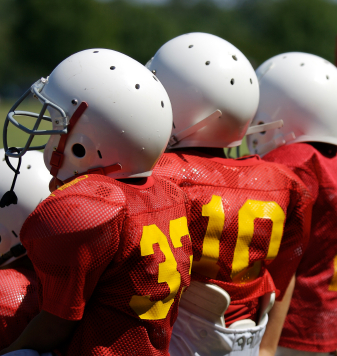For years, it seems, MomsTEAM has been getting e-mails from mouth guard manufacturers touting their products as reducing the risk of concussion, despite the lack of any peer-reviewed scientific studies to support their claims.

Last year, as readers of my blog may recall, I even got into a bit of a tete-a-tete with the co-author of one of the many books about concussions that have come out in recent years, when, at the end of an otherwise favorable review of the book, I took the authors to task for including a story about how one college athlete with a multiple concussion history was allowed to take the basketball court (after switching schools) because she agreed to wear a "customized mouthguard designed for greater shock absorption." I believed then - and continue to believe - that the story sent the wrong message: that mouthguards can prevent concussions.
So it was with a certain degree of satisfaction that I read yesterday of an announcement by the Federal Trade Commission that it had reached a settlement barring Brain-Pad, a mouthguard manufacturer, and its President, Joseph Manzo, from making unsupported claims that its mouthguard reduced the risk of concussion from lower jaw impacts, reduced the risk of concussions generally, or have been clinically proven to do either.
In announcing the settlement, the FTC's Director of the Bureau of Consumer Protection, noted that, "Mouthguards can help to shield a person's teeth from being injured, and some can reduce impact to the lower jaw. But it's a big leap to say these devices can also reduce the risk of concussion. The scientific evidence to make that claim just isn't adequate."
The action by the FTC was immediately applauded by Senators Tom Udall (D-N.M.), who has been outspoken in recent years on the subject of concussion safety. Udall told the Hill newspaper that, while "increased awareness of the dangers associated with sports concussions is extremely important, as the Brain-Pad settlement proves, some companies seem to be taking advantage of the fears of parents, coaches, and athletes."
MomsTEAM has been reminding parents for years that mouth guards should be worn to protect against dental injuries, not because they reduce concussion risk. It is reassuring that the FTC, the government agency charged, among other things, with evaluating health claims by advertisers to make sure they are supported by the evidence, is doing its job, too.
For my earlier blog on the mouth guard/concussion controversy, click here.



















